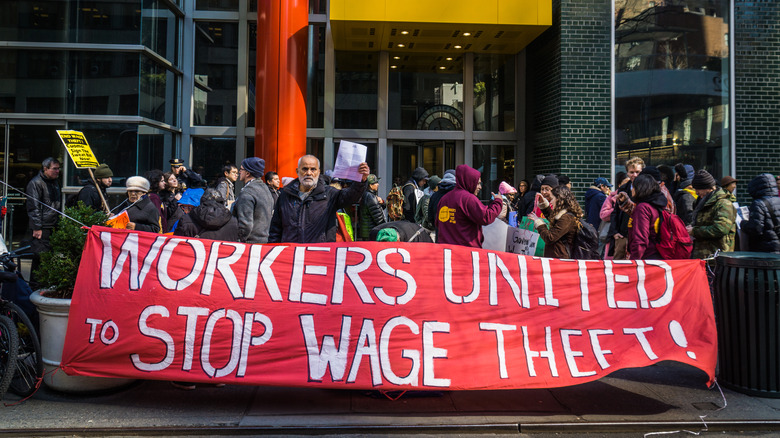Thai Food Chain On The Hook For $1.6 Million Following Wage Theft Probe
As long as there have been workers who toil and management that oversees business, there has been a need for provisions and organizations that protect and balance the interests of each which at times run counter to each other. According to History, the labor movement in the U.S. stretches back to colonial times but truly picked up steam during the swift industrialization of the 19th century.
But since the 1940s, the power of the labor movement and labor unions in the U.S. has been on the decline, says the Economic Policy Institute. This has allowed major companies and corporations to deploy anti-union tactics, cripple organization efforts, and skirt existing labor laws with some degree of impunity. Workers find themselves battling management for what they see as fair deals and an end to unjust practices across a range of industries, including the food and beverage sector. As National Restaurant News reports, wage theft is an acute problem in the industry, with 85% of fast food workers polled in California experiencing some form of it.
Wage theft takes many forms, says HG Legal. Skimming tips, failure to pay minimum wage, illegal deductions, unpaid overtime, and unpaid breaks add up to billions in lost wages every year. It's a hard-learned lesson for one Los Angeles chain.
Not meeting the minimum
The Wages and the Fair Labor Standards Act requires employers to compensate employees with "one and one-half times the regular rate of pay" when they work more than 40 hours within a 168-hour stretch of time. But a California-based Thai restaurant chain chose not to do this, denying dozens of workers $825,775 in overtime pay, reports the U.S. Department of Labor in a press release. Following an investigation into the matter, over $1.6 million in illegally withheld wages and "liquid damages" has been recovered from Los Angeles restaurateur Prapai Boonyindee, who operates a small chain of chain six Ocha Classic restaurants and one other establishment called Vim.
The number of workers affected at each location was as low as five and as high as 26, and a total of 83 were not properly compensated. Investigators also found that workers' time slips were tampered with to cover the violations. Unfortunately, this story is part of a larger problem that could be getting even bigger. Wage theft is on the rise, according to Mother Jones, with women and people of color being particularly vulnerable. Frequently, as with above, overtime pay is not properly accounted for, and tipped employees – who are, in many states, legally allowed to be paid below the federal minimum wage as long as tips or their employers cover the balance – have reported their income falling short of mandated levels.

